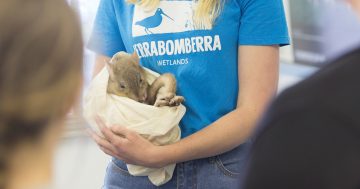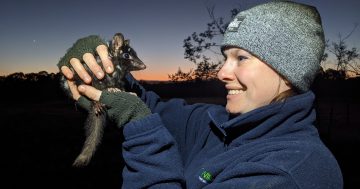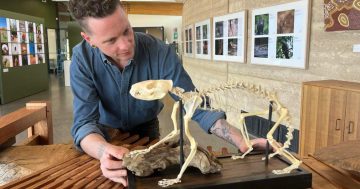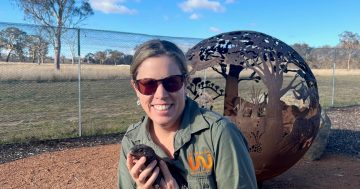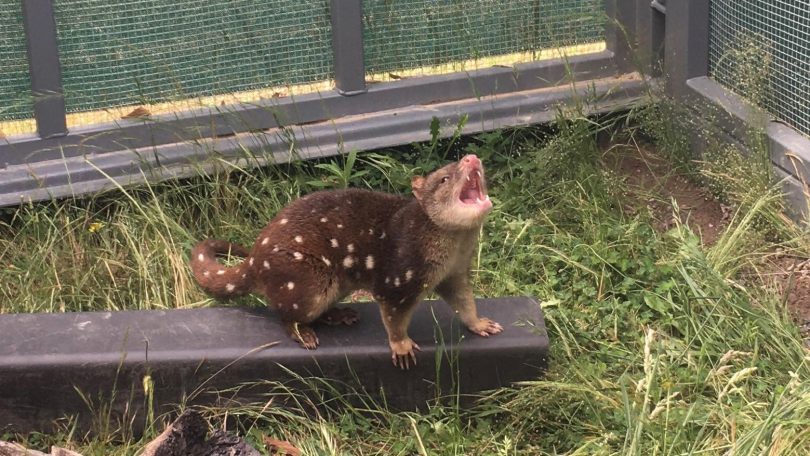
One of the Spotted-tailed quoll heading to Mulligans Flat. Photo: Jenna Ridley.
Animals of Mulligans Flat, beware!
The 15-year era of peace at the sanctuary is over. For the first time since fox-proof fencing was introduced, the inhabitants of Mulligans Flat will have an apex predator to deal with – the spotted-tail quoll.
Ecologist and outreach manager at the Mulligans Flat Nature Reserve Millie Sutherland Saines explained that while the project has been successful in reintroducing different species into the ecosystem, the lack of feral animals, a result of the fox-proof fencing, has meant that there is now an overabundance of certain species in the sanctuary.
Ms Sutherland Saines says kangaroos across the ACT are a good example of what happens when an ecosystem is unbalanced.
“We’ve made the conditions really nice for kangaroos to procreate and spread all over our nature reserves. But we’ve also got rid of their major predator, the dingo, so because of these things, we just have so many kangaroos around and the ecosystem that has evolved is out of whack.
“It seems like that is potentially happening in Mulligans Flat.
“When we got rid of cats and foxes, we removed all predators, and while we focus a lot on the species that are endangered that we have in there, we do have a lot of other species that were just in there when the fence was closed in,” she said.
Among those species are the swamp wallaby, the red-necked wallaby, brushtail possums and sugar gliders – and they’ve been steadily increasing in numbers.
“They’ve been happily existing in this perfect sanctuary without any predators, so we have seen particularly possum numbers increase since we put up the fox-proof fence,” said Ms Sutherland Saines.
That’s the main role the two spotted-tailed quolls will play, especially when it comes to the brushtail possum which has become over-populated and considered one of the spotted-tailed quolls favourite meals.
As well as bringing “control” to the animal populations in the sanctuary, their other role will be teaching the endangered species how to become co-inhabitants with their predators.
The two spotted-tailed quolls are desexed, male brothers, so there is no risk of them breeding. At this stage, there are no plans to introduce a breeding population of the species at Mulligans Flat.
Ms Sutherland Saines noted that the quolls are tagged and traceable, which is important as they have a habit of making escape attempts.
If you live in the surrounding region and happen to come across a collared spotted-tailed quoll, the advice is to call the Mulligans Flat mobile at 0428 224 904 or reach out to them via social media @MulligansFlat.












